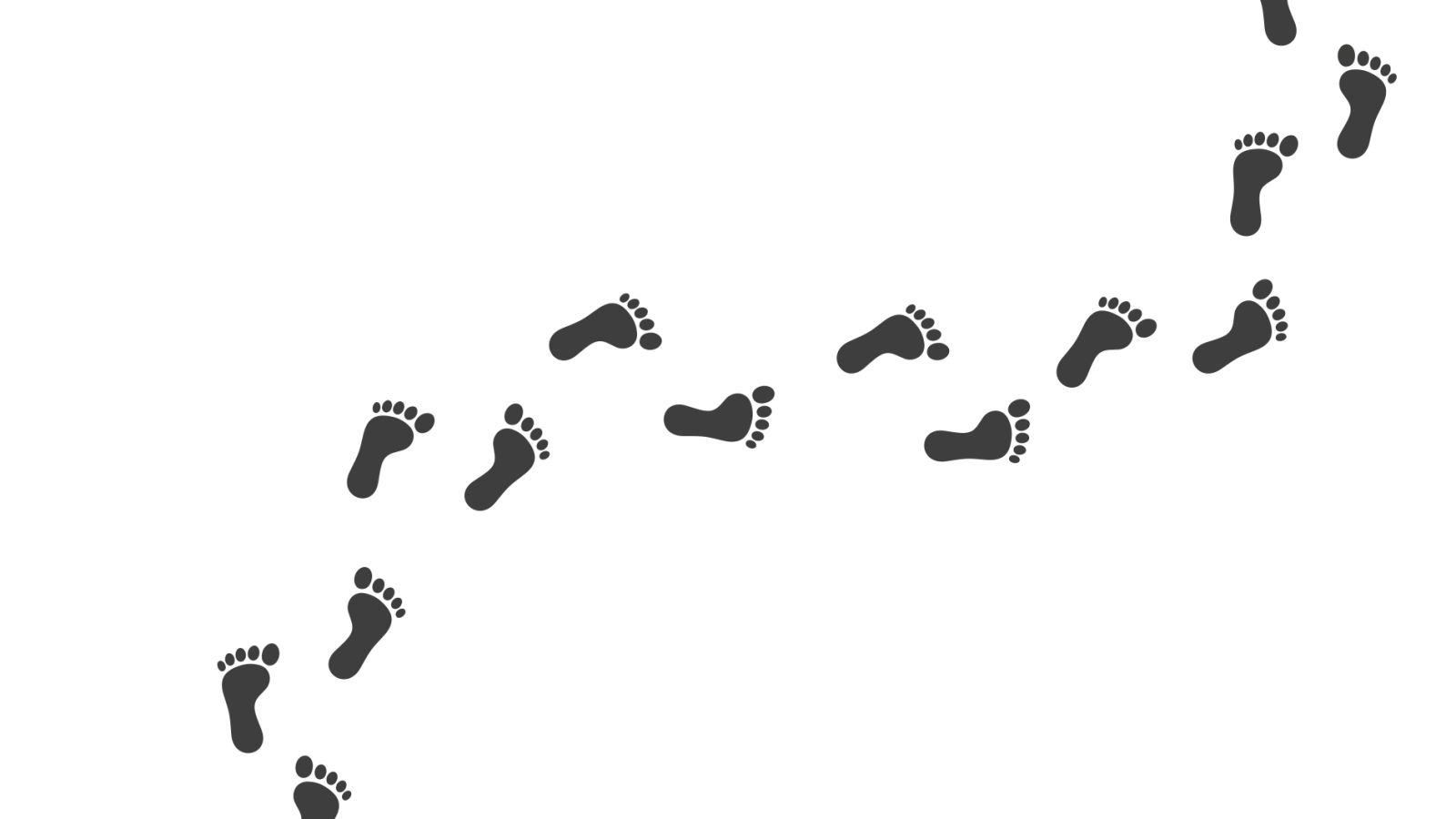Exhortations and Admonitions


So if one has faith – and he offers the obligatory duties, and abandons the prohibitions – then he will not enter the Fire, as has been frequently reported in authentic ḥadīths from the Prophet ﷺ regarding this principle.
The Path of the Believers
Imām Ibn Abī Jamrah said:
Indeed, the scholars have said regarding the statement of Allāh:
“…And follows other than the Path of the Believers, We will turn him to what he has turned to…”
[Sūrah al-Nisāʾ, 3:115]
that what is meant by it is the Companions, and the first generation, because they themselves were the first ones to encounter opposition to the Sunnah. So they cured it by the best of questions about what took place in their souls due to some ambiguity. So he ﷺ answered them with the best of answers and explained to them with the most complete of explanations. So they listened, and they understood, and they acted, and they perfected, and they memorized, and they mastered, and they believed. So they have a tremendous virtue over us. It is through them that we can connect our rope to the rope of our leader, Muḥammad ﷺ, and to the Rope of our Protector.” 1
From the Fruits of Īmān
Imām as-Saʿdī said:
“So from them is that complete faith (īmān) negates dwelling in the Fire. Faith (īmān) – even if it is little – prohibits one from dwelling it.
So if one has faith – and he offers the obligatory duties, and abandons the prohibitions – then he will not enter the Fire, as has been frequently reported in authentic ḥadīths from the Prophet ﷺ regarding this principle. Likewise, it has been frequently reported from him that the one who has something of faith (īmān) in his heart, will not dwell in the Fire, even if it is little.” 2 3
Good Manners
From Abī Hurayrah (raḍī Allāhu ʿanhu) that the Prophet ﷺ said:
“The most complete of the believers in faith (īmān), is the best of them in manners.” 4
Shaykh Muḥammad Ibn Ṣāliḥ al-’Uthaymīn says:
“This ḥadīth should always be in front of the eyes of the believer. So the most complete of the believers in faith (īmān), is the best of them in manners with Allāh, and with the servants of Allāh.” 5
Learning and Implementing the Qurʾān
ʿAbdullāh Ibn Masʿūd (raḍī Allāhu Taʿālá ʿanhumā) said:
“We used to learn ten āyahs, not increasing upon them until we had implemented them.”6
Abū ’Abdur Raḥmān as-Sulamee (raḥimahullāhu Taʿālá ʿanhu) said:
“Verily we took this Qurʾān from a people about whom it was reported to us that if they learned ten āyahs, they would not move onto another ten until they had learned what was in them. So we used to learn the Qurʾān and implement it. Verily the Qurʾān will be inherited after us to a people who will retain it in a way that water is retained. It will not pass beyond their collar bones, rather it will not pass beyond here.” – and he put his hand upon his throat.” 7
The Heart Knowing Allāh
Imām al-Bukhārī said:
“Chapter: the saying of the Prophet ﷺ : ‘I have more knowledge of Allāh than you all.’ And that maʿrifah (knowledge/realization) is an action of the heart about which Allāh the Exalted says:
“But He will call you to account for what your hearts have earned.”
[Sūrah al-Baqarah 2:225]” 8
Al-Ḥāfiẓ Ibn Rajab said:
“So hearts will not be corrected until the maʿrifah of Allāh – being in awe of Him, loving Him, fearing Him, relying and trusting in Him, hoping in Him – is not firmly implanted in them. This is the reality of Tawḥīd and the meaning of the statement Lā ilāha illā-Allāh (None has the right to be worshipped except Allāh). So the hearts cannot be corrected until Allāh is made the ilāh (deity) to be known, loved, feared and hoped for; and that He becomes the only deity (ilāh) worthy of this – without associating any partners with Him in this. So know that the world – whatever is above and whatever is below in the waters – will not be corrected, except when the actions of its people are all for Allāh’s sake. Since the actions of the body follow from the actions and intentions of the heart, then when the heart’s actions and intentions are only to Allāh alone, then it is corrected, and all the actions of the body will likewise be corrected. However, if the actions and intentions of the heart are directed to other than Allāh, then it is corrupted, and likewise, all the actions of the body will be corrupted in proportion to how much the heart has been corrupted.” 9
The Guidance of the Scholars
Imām al-Ājurrī said:
“Consider – may Allāh have mercy upon you – a path thwarted with great dangers, yet people need to traverse it, even in the darkness of night. If there were no light upon this path, the people would be terrified. However, Allāh gave them a guiding light by which they were able to traverse this path in peace and safety. Then came groups of people who also needed to traverse this path, so they traversed it. However, during this time the guiding light became extinguished and the people returned to a state of darkness. So what would your opinion be about their condition? This is the example of the scholars and the common people. Most people do not know how to fulfill their obligatory duties, nor how to avoid prohibited matters, nor how to worship Allāh correctly – all of this they learn from the scholars. So with the death of the scholars, mankind returns to a state of anxiety and terror, the teaching of knowledge dies whilst ignorance prevails – what an enormous calamity this is for the Muslims. Indeed to Allāh we belong and to Him we all return.” 10
The Gradual Decline of the Ummah
Shaykh Muḥammad Nāṣir al Dīn al-Albānī said:
“It must also be known that his ﷺ statement: ‘A time will not come upon you, except that that which comes after it will be worse – until you meet your Lord.’11 Then this ḥadīth must be understood in light of the preceding aḥādīth as well as in the light of others – such as the aḥādīth about the Mahdī and also the descent of ʿĪsá (ʿalayhis salām) which show that this ḥadīth is not to be understood as having no exceptions, rather it is general and has exceptions. Thus, it is not permissible to cause the people to understand it as being unrestricted, such that they fall into despair – which no believer should have as an attribute.
“Indeed no one despairs of the Mercy of Allāh except those who disbelieve.”
[Sūrah Yūsuf 12:87]12
Signs of the People of Innovations and Desires
Imām Wakīʿ Ibn al-Jarrāḥ ar-Ra`oosee said:
“The people of knowledge write what is in their favour and what is against them. However, the people of desires (ahwā) do not write anything except what is in their favour.” 13
Imām Abī Ḥātim al-Rāzī said:
“A sign of the people of innovation is that they fight the people of narrations (ahl al-al-athar).”14
The Islamic State
Shaykh Muḥammad Nāṣir al Dīn al-Albānī said:
“In conclusion, I say, there is a statement by one of the du’aat (callers to Allāh) – I was given hope in its imperativeness and correctness from following it – it is ‘Establish the Islamic State in your hearts, it will be established for you in you land.’ So if the creed of the Muslim is correct – built upon the Book and the Sunnah – then there is no doubt that due to this, his worship will become corrected and his manners will become corrected and his dealings will become corrected.
However, this good statement – unfortunately – is not acted upon by these people. So they go astray with shouting demands for the establishment of the Islamic state, but to no avail.
Indeed, that poet – by Allāh – spoke truthfully about them:
‘You desire salvation, but you do not tread its path.
Verily the boat does not sail upon dry land.'” 15 16
Sins Deaden the Heart
Imām at-Tirmidthī said:
“From Abū Hurayrah (raḍī Allāhu ʿanhu) that the Prophet ﷺ said: ‘When a servant commits a sin, a black spot appears upon his heart, so if he desists, seeks forgiveness and makes repentance; then his heart is cleansed. And if he returns (to the sin), it (the black spot) is increased until it takes over the heart. And it is the filth that Allāh mentions:
“But no! It is the covering of sins which is upon their hearts because of what they used to do.”
[Sūrah al-Mutaffifīn 83:14]17
Imām Ibn Abīl ’Izz al-Hanafī said:
“Ibn al-Mubārak – may Allāh have mercy upon him – said:
‘I see that sins deaden the heart,
And doing so continuously produces despicableness.
Abandoning sins is the life of the heart,
And rebelling against them is better for your yourself.
And has anything destroyed the Religion,
Except kings and evil scholars and evil monks?’ 18
Speaking Against the Scholars
Imām Ibn ʿAsākir said:
“Know – O my brother, may Allāh bring us into conformity with what pleases Him, and make us from those who fear Him and are conscious of Him in a manner which He truly deserves – that the flesh of the scholars is poisonous, and the practice of Allāh in disgracing those who belittle and revile them is well known. Rather slandering them – by that which they are free of – is a great matter, and to take away their honour by means of falsehood and lies is a hotbed of evil and vice. An offense against one whom Allāh has chosen to revive knowledge by is a blameworthy characteristic. And to perpetrate a crime which the Prophet (ṣallallāhu ʿalayhi wa-sallam) forbade is from the most significant slander.
“So let those who oppose his command beware that a trial befall them or that they be stricken by a painful punishment.”
[Sūrah al-Nūr 24:63]” 19
Knowing the Good and the Evil
ʿAbdullāh Ibn Masʿūd heard a man saying:
“Whoever does not command the good and prohibit the evil is ruined!”
So he replied to the man:
“Whoever does not know the good and the evil in his heart is ruined.” 20
al-Ḥāfiẓ Ibn Rajab al-Ḥanbalee said:
“Ibn Masʿūd indicates that knowledge of the good and the evil in the heart is an obligation from which no one is exempt. So whoever does not know it is ruined.” 21
Endnotes:
[1] Bahjatun Nufoos (1/4)
[2] At-Tawdeeh wal-Bayān li Shajaratil Īmān (p. 55-56)
[3] This statement is derived from the ḥadīth of Abī Dharr mentioned in Bukhārī (7/149), and in Muslim (1/66), and in Tirmidthī (10/133), and in al-Mishkātul Masaabeeh (1/5), and in the ḥadīths of Jābir, and Ibn Masʿūd mentioned in Ṣaḥīḥ Muslim (1/65-66)
[4] Related by Aḥmad (2/250), Tirmidthī (no. 2612), Abū Dāwūd (no. 4683), al-Ḥākim in al-Mustadrak (1/53), Ibn Hibbān (2/227). Shaykh Muḥammad Nāṣir al-Dīn al-Albānī declared it good (ḥasan): al-Ṣaḥihah (nos. 284, 751), Ṣaḥīḥ al-Jāmiʿ’ (no. 1230), and al-Īmān of Ibn Abī Shaybah (no. 17-20).
[5] Sharḥul ʿAqīdahtil Waasitiyyah (2/353)
[6] Related by Ibn Jarīr al-Tabarī with an authentic chain of narrators. See Basaa`ir Dhush-Sharaf (p. 138)
[7] Related by Ibn Sa’d in Tabaqaatul Kubraa (6/172)
[8] Related by al-Bukhārī (1/88)
[9] Jāmiʿul ’Uloom wal-Hikam (p. 120)
[10] Akhlāqul ‘Ulamāʾ (p. 28)
[11] Related by al-Bukhārī (no. 7068)
[12] Silsilatus-Ṣaḥīḥah (1/8)
[13] Related in the Sunan of al-Dāraqutnī (1/26)
[14] Sharḥ Uṣūl al Iʿitiqād (1/39) of Imām al-Lālikāʿī
[15] al-Taḥdhīr minFitnah al-Takfīr (p. 88-89)
[16] This is from the poetry of Imām al-Shāfiʿī, see his Deewaan (p. 86), with the checking of Muḥammad ʿAbd al Mun’am al-Khaffaagee.
[17] Jāmiʿut-Tirmdthee (1/123)
[18] Sharḥul ʿAqīdahtit Tahaawiyyah (p. 208)
[19] Tabyeen Kadthibul Muftaree (p. 29-30)
[20] Mu’jamul Kabeer (9/112) of Imām at-Ṭabarānī
[21] Jāmiʿul ‘Uloom (2/245)
Prepared by Maaz Qureshi
Most Popular: Last 30 Days















